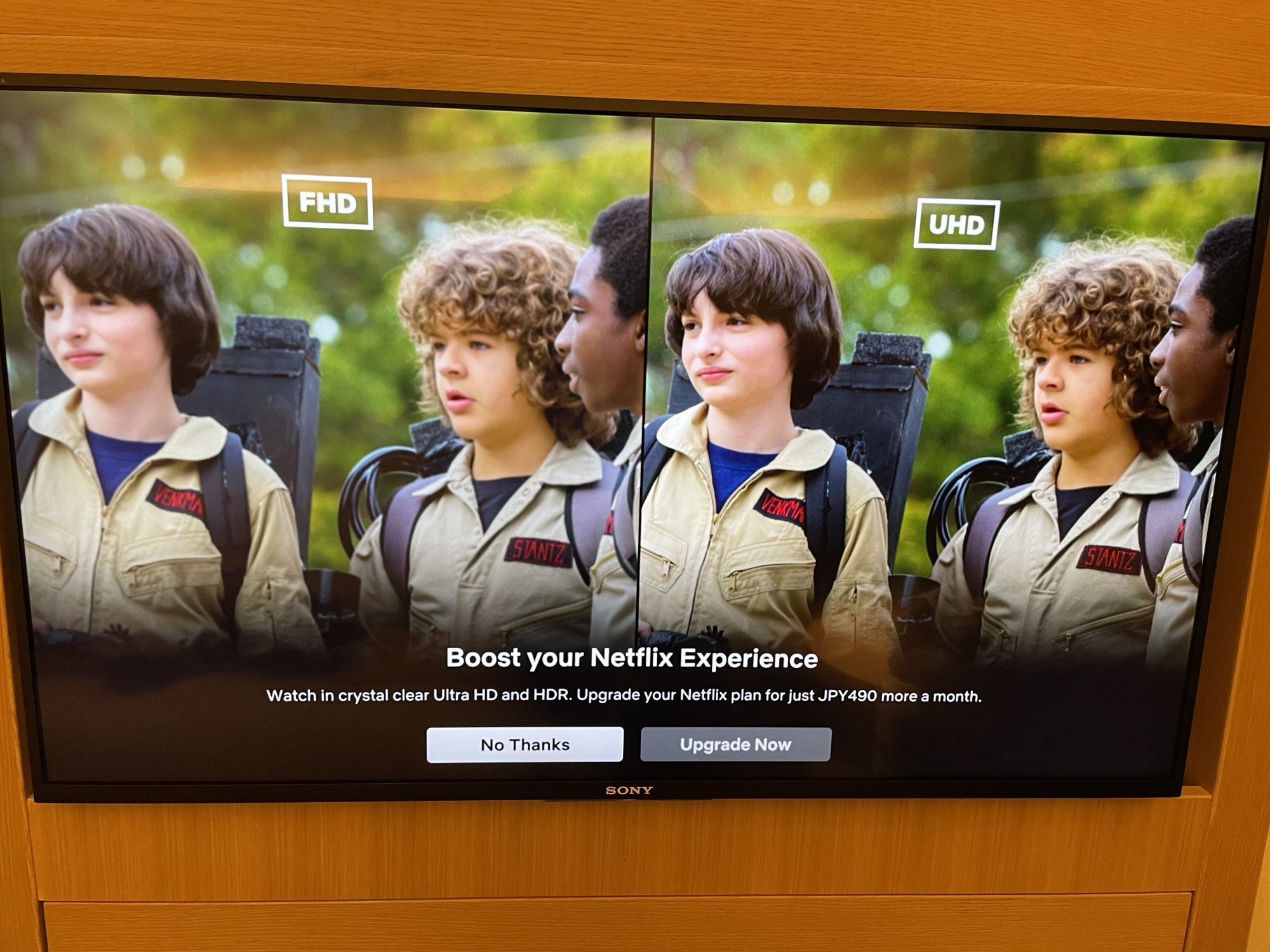this post was submitted on 19 Jul 2023
501 points (97.2% liked)
AssholeDesign
7948 readers
1 users here now
This is a community for designs specifically crafted to make the experience worse for the user. This can be due to greed, apathy, laziness or just downright scumbaggery.
founded 2 years ago
MODERATORS
you are viewing a single comment's thread
view the rest of the comments
view the rest of the comments

-Password crackdown
-Removal of Basic Plan
-Aggressive advertising to up-package
-Focus on 1-3 years of low-budget 'reality' TV
Yikes. Netflix is hellbent on extracting maximum revenue possible, regardless of how shitty their product gets in the meantime.
Long run, they are corporate morons.
T-Mobile was "paying" for a rarely-used account on my family plan. Parents used it in another state. I occasionally used it. My brother logged in once in awhile. On any given week, it might see like 4 hours of collective viewership.
Turns out TMobile's contribution only covered the first $8. I have been paying another $10/mo. out of my own pocket and wasn't batting an eye.
Netflix was getting $18 a month for doing almost nothing! And that could have continued for many more years without my even questioning it.
BUT... One day I couldn't sign onto my own Netflix account that I pay for. Evidently, I'm not in my own household? That led to my discovery of the gargantuan amount I was paying for a service I barely use anymore.
So now, thanks to their greed, Netflix gets $0 from me. And not a single family member has phoned to ask why Netflix no longer works.
Some executives in Los Gatos may soon learn Econ 101's supply-and-demand curve.
Sadly, I'm confident they have a very good understanding of micro and macro economics and understand this action WILL cost them customers, but they've also calculated that they'll make MORE money by removing the features and abilities that existed in the product before the change.
They made this decision to earn them more money, and they're probably right.
But.....
A more expensive product becomes a more price-sensitive product. Now one customer represents income from 3-4 customers.
Recession hits. People are more likely to cancel something that is $25/mo than $8/mo. And each cancellation is like three cancellations.
Going "premium" is a valid strategy. But since we haven't had a serious recession in 15 years, I believe it's a shortsighted one.
Are we not in a recession right now?
What these economists always fail to capture is that people prefer using services they are happy with. They figured they could lose a certain amount of users because the remaining users will remain and pay more per person. What they fail to take into account is that the people left are going to be way less happy with the service, and actively looking for replacements.
It's the same story all over. And unlike Reddit and Twitter, Netflix was actually making a profit.
That's built right into the Elasticity of Demand. The economic term phrase is search for substitution.
"When consumers make buying decisions, substitutes provide them with alternatives. Substitutes occur when there are at least two products that can be used for the same purpose, such as an iPhone vs. an Android phone. For a product to be a substitute for another, it must share a particular relationship with that good. Those relationships can be close, like one brand of coffee with another, or somewhat further apart, such as coffee and tea. "
What this means is they can actively calculate the number of subscribers they will lose when they increase the price of the product. They can also calculate the amount of more money they'll get with higher subscriber fees. They compare the two numbers and choose the one that makes them the most money.
They can (and indeed do) calculate the direct effects by the price increase, and the initial loss of users is expected.
What I think they lack good models for is customer loyalty in a deeper sense. Sure, a lot of people are going to stick around in the short the short term, but Netflix is completely eradicating the competitive advantage it had a few years ago. These decisions might very well maximise profits in the short term, but in the long term I think they're undermining the very things that made Netflix such a success in the first place.
It's exactly like the packaged deals cable companies sell you
I just use Bflix it's A+
Don't forget withdrawing their DVD delivery service.